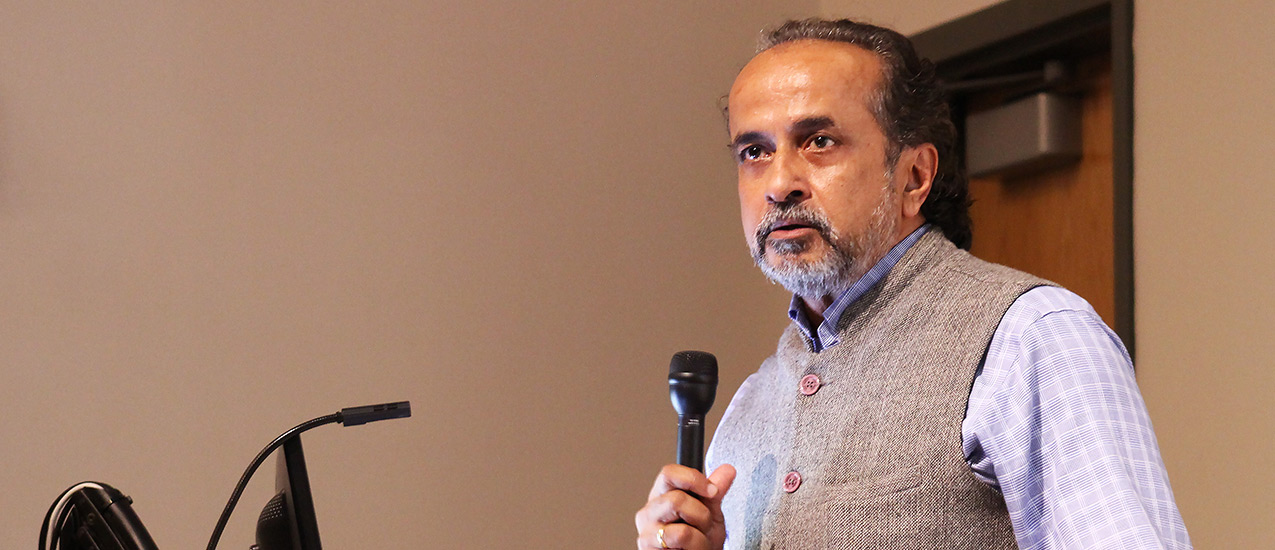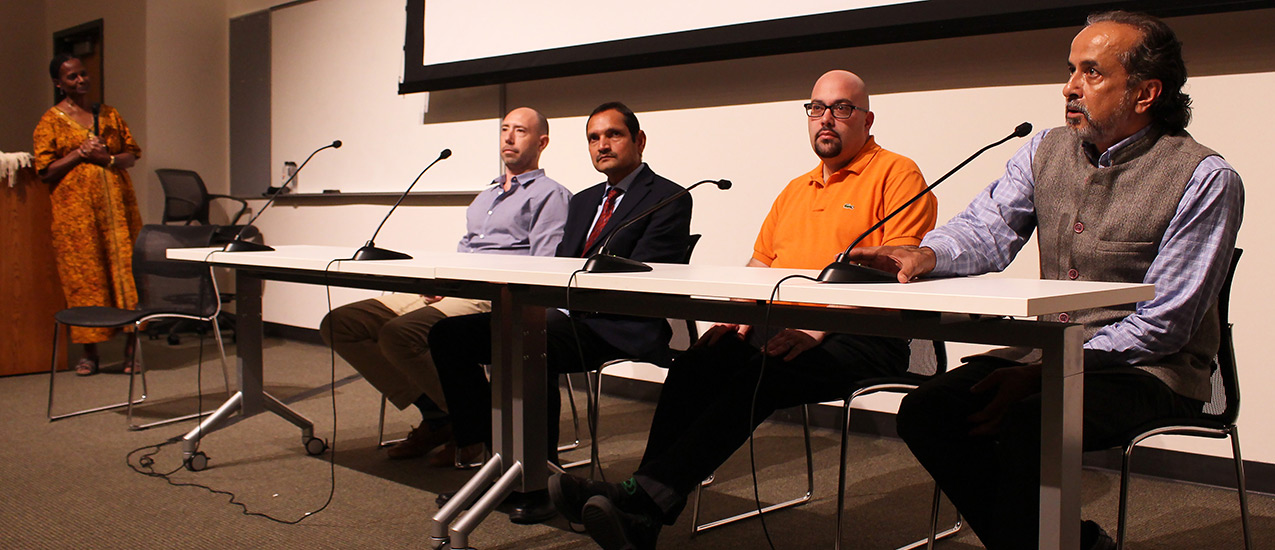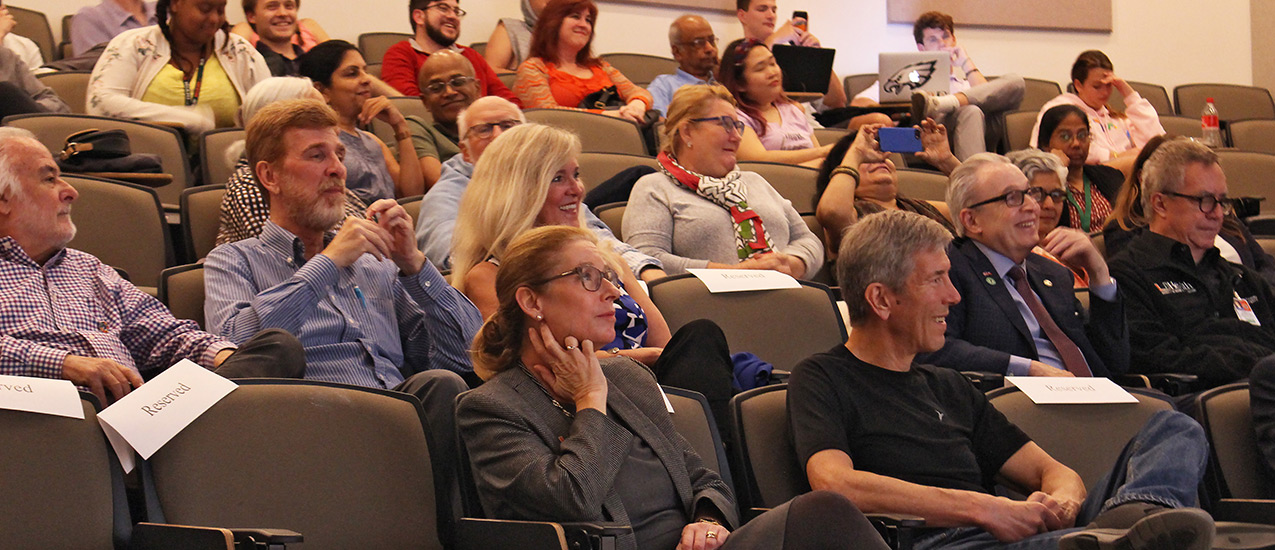By: Karina Valdes
In Sanjeev Chatterjee’s latest documentary, Sweet Malady, the filmmaker explores the cultural relationship people of Kolkata, India have with sweets and the increasing incidence of Type II Diabetes in the city. The documentary premiered on Feb. 12 at the University of Miami School of Communication and was followed by a panel of diabetes, public health, and film experts.
“We’re talking about a health issue here tonight which, of course matters in terms of it being a singular issue, but [Chatterjee] is an expert at enabling us to see the cultural connections, the cultural practices, and pride, balanced with health advice from professionals,” said Karin Wilkins, dean of the School of Communication.
According to the film, developing countries are seeing an alarming rise in the incidence of Type II Diabetes. In the West Bengal city of Kolkata, about one in five adults have the disease. Dr. Debashish Basu, endocrinologist and founder of Diabetes Awareness and You, explains how diabetes is a silent killer affecting multiple organs and body parts including the eyes, kidneys, stomach, and feet. Poor circulation and diabetic neuropathy can lead to various complications, including the unexpected loss of toes.
“The patients wake up in the morning, they come to the clinic with the amputated toes in a matchbox and they frantically ask you to get a quick fix- a glue to stick [the toe back] on. Because the toe has amputated at night, he had no pain and even before the process, there was not pain, so there is a dry gangrene and the toe amputated,” said Basu.
Although the disease can lead to debilitating ailments, in Kolkata, diabetes is so rampant that the effects of the disease are overshadowed by cultural acceptance.
“You are diabetic? Well, well okay, I am also diabetic, my father is a diabetic, you know, my uncle is a diabetic. All my friends are diabetic. So it’s kind of a status symbol,” explains Basu.
With Sweet Malady, Chatterjee is initiating conversations that look at disease treatment from a cultural perspective.
“I want to highlight the specific cultural practices that get in the way of treatment,” said Chatterjee.
Dr. Rajesh Kumar Garg, director of the Comprehensive Diabetes Center at The Lennar Foundation Medical Center at the University of Miami, explained during the panel discussion that proceeded the film how health care providers need to adapt to the cities they work in.
“It comes down to being culturally sensitive. The things that work in Boston would not work in Miami. I could realize that as soon as I landed here. So you have to be culturally relevant and aware, and incorporate that into your health plan,” said Dr. Garg.
For Chatterjee, the making of this film and the dialogue that he hopes to spark, have a personal connection.
“This is a film I’ve wanted to make for a very long time. Just looking at people I know and people within the family who have had this attitude that tries to balance the idea of happiness in this world, and especially for Bengalis where happiness is equal to food, and the health challenges that come with it,” said Chatterjee.
Going forward, Chatterjee plans to screen Sweet Malady at other universities and institutions to further the dialogue on Type II Diabetes and the effect culture has on treatment. He also wants to develop other films focusing on health and culture.
“Our plan is to make other films like this in different parts of the world,” said Chatterjee.
The panel of experts was moderated by Tsitsi Wakhisi, associate professor of professional practice, and was composed of; Dr. Michael Touchton, assistant professor and global health associate faculty lead at the University of Miami; Dr. Rajesh Kumar Garg, director of the Comprehensive Diabetes Center at The Lennar Foundation Medical Center at the University of Miami; Scott Alboum, a filmmaker, professor, author, and illustrator who was diagnosed with Type II Diabetes in 2014 during a life insurance exam; and Sanjeev Chatterjee, School of Communication faculty member and filmmaker.









